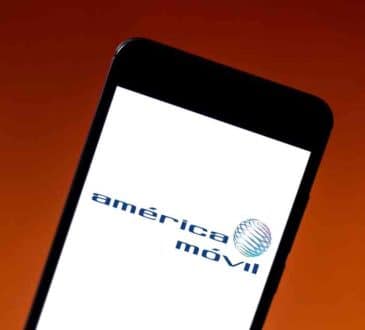Every Negotiation Is Won Or Lost Before It Even Begins

Negotiation is a dialogue between various people to resolve conflicts amicably. In this process, some people gain while some people lose. There are various styles of negotiation such as win-lose, lose-win, lose-lose, and win-win. It is advisable to achieve a win-win outcome but it rarely occurs. In a win-win outcome, all stakeholders exit graciously with an amicable solution.
Negotiation is a skill that can be honed through learning, training, practice, and experience. It sounds easy to negotiate with others but there are practical challenges involved. The best way to acquire negotiation skills is through trial and error method and taking feedback promptly. Here are some differences between hard and soft tactics. Hard tactics involve threats while soft tactics involve compromises. Hard tactics involve criticism while soft tactics involve conciliation. Hard tactics involve rigidity while soft tactics involve flexibility. It is ideal to emphasize smart tactics by sandwiching hard tactics between two soft tactics and blending hard and soft tactics as per the situation to achieve a win-win outcome.
If you are not comfortable negotiating with the other party, hire an expert who can negotiate on your behalf. Don’t give concessions quickly as that might convey that you are in a hurry to reach an agreement thus ending up with a lose-win outcome. Apply soft tactics initially and adopt hard tactics gradually to let the things fall in your favor. A judicious blend of hard and soft tactics help you negotiate effectively and reach an amicable and everlasting solution.
Every negotiation is won or lost before it even begins. Therefore, preparation is key to a successful negotiation. Understand the intentions and expectations of the other party. Avoid executing in a hotchpotch manner. Be clear, serious, and committed to the negotiation process. Keep all the documentary evidence ready to prove your point and counter the points of the other party.
To negotiate effectively, you must understand your strengths and weaknesses and assess the strengths and weaknesses of the other party. Thorough research about the issue and the other party will help you immensely to achieve the desired outcomes. You must craft a strategy and prepare thoroughly for the negotiation process. Before you start the negotiation process, fix in your mind the minimum and maximum you expect from it. If you get the maximum, it is a win-lose; if you get the minimum it is a lose-win; If you hit in the middle, it is a win-win.
Almost everything is negotiable. The best negotiators are the best listeners. Ask great questions. Separate people from the problem. Focus on facts and issues. Avoid emotions. Emphasize interests, not individuals. Don’t view the other party as your opponent. Empathize. Remember that people are different because of their culture, environment, attitudes, and beliefs.
For a negotiation to be successful, all parties must be transparent to build mutual trust. They must be flexible to resolve the issue amicably. Their intentions must be positive and actions must be clear to come out of the conflicts successfully. The parties must prepare mentally for the worst and the best scenarios. In the negotiation process, adopt a carrot and stick policy. Reshuffle your negotiation strategies as per the situation. Anticipate how far the other party can go, and be prepared accordingly. Engage negotiation experts who can handle the negotiation process professionally by adopting appropriate tools and techniques. Emphasize soft tactics in the first stage, hard tactics in the second stage, and again soft tactics in the third stage to achieve the desired outcomes during the negotiation process.
Close the deal quickly. Fix a timeframe to resolve the conflicts. Avoid wasting your precious time, money, energy, and resources on lengthy negotiations. Agree for a lower benefit to resolve them and invest the benefits in other potential areas. The successful entrepreneurs cut their losses quickly and invest their capital in potential industries and areas. Remember that short timelines and intense negotiations pay off.
Explore creatively by consulting with your trusted advisors. Look at the issue objectively. Create a common ground acceptable to all. If things don’t work out, take feedback to improve your decisions to participate in the negotiation process effectively. Be flexible to modify your negotiation strategies as there are no quick-fix solutions. Avoid following the outdated negotiation tools and techniques because what worked in the past in different situation might not work in the present situation.
There is a strong belief in the negotiation process that if someone wins, someone loses which is not correct always. To summarize, be clear about your goals and objectives. Anticipate what the other party expects. Bridge the gap between them to achieve a win-win outcome. Above all, create a graceful exit to the other party to end the negotiation process with a sweet note. To conclude, resolve conflicts amicably by adopting innovative tools and techniques as per the situation.
Commentary by Professor M.S. Rao, Ph.D. Here’s what you’ve missed?
World’s Best Leisure Destinations.
World’s Largest Megacities By Population.
Luxury Superyacht charter in Greece and the Greek Islands.
World’s Best Leisure Destinations.
Add CEOWORLD magazine to your Google News feed.
Follow CEOWORLD magazine headlines on: Google News, LinkedIn, Twitter, and Facebook.
This report/news/ranking/statistics has been prepared only for general guidance on matters of interest and does not constitute professional advice. You should not act upon the information contained in this publication without obtaining specific professional advice. No representation or warranty (express or implied) is given as to the accuracy or completeness of the information contained in this publication, and, to the extent permitted by law, CEOWORLD magazine does not accept or assume any liability, responsibility or duty of care for any consequences of you or anyone else acting, or refraining to act, in reliance on the information contained in this publication or for any decision based on it.
Copyright 2024 The CEOWORLD magazine. All rights reserved. This material (and any extract from it) must not be copied, redistributed or placed on any website, without CEOWORLD magazine' prior written consent. For media queries, please contact: info@ceoworld.biz
SUBSCRIBE NEWSLETTER








